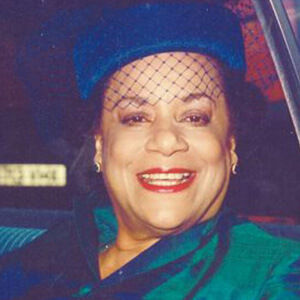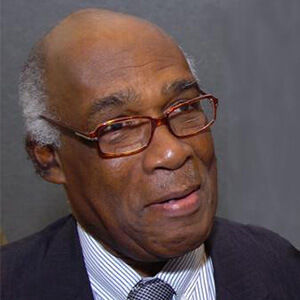Standing Firm in Power and Pride: The Legacy of Dame Jocelyn Barrow and Justice Henderson Downer
Is your ethnicity relevant to your professional life? In this case it was. This is a picture of my late aunt and uncle, Dame Jocelyn Barrow and her husband, His Honour Justice Henderson Downer. They had successful careers in law, education and public service and the paths they took were largely dictated and influenced by their being a Caribbean man and woman in 1970s England.
 Jocelyn moved here in 1959 for a post-graduate degree after being involved in politics and education in Trinidad (where my mother was born and raised). Arriving in England she was struck by the lack of equal opportunities for people of colour and became a founding member of the Campaign Against Racial Discrimination, which directly led to the Race Relations Act 1968. This was the start of her journey through public service, which saw her become the first black female governor of the BBC, a role she held for three terms. She also helped to the found The International Museum of Slavery in Liverpool and was a committee member on the European Economic and Social Committee. In 1992 she received a damehood for her services to Education and Race.
Jocelyn moved here in 1959 for a post-graduate degree after being involved in politics and education in Trinidad (where my mother was born and raised). Arriving in England she was struck by the lack of equal opportunities for people of colour and became a founding member of the Campaign Against Racial Discrimination, which directly led to the Race Relations Act 1968. This was the start of her journey through public service, which saw her become the first black female governor of the BBC, a role she held for three terms. She also helped to the found The International Museum of Slavery in Liverpool and was a committee member on the European Economic and Social Committee. In 1992 she received a damehood for her services to Education and Race.
 Her husband, Henderson, arrived from Jamaica for a scholarship at Oxford University and then qualified as a barrister in Lincoln’s Inn. He realised very quickly that working as a black barrister in London would be challenging and the opportunities limited. He decided to return to Jamaica where he rose to become a Court of Appeal judge and on his retirement, he ran the Children’s Advocacy unit. It still gives me pleasure to see his judgments on LexisNexis as part of the Commonwealth jurisprudence.
Her husband, Henderson, arrived from Jamaica for a scholarship at Oxford University and then qualified as a barrister in Lincoln’s Inn. He realised very quickly that working as a black barrister in London would be challenging and the opportunities limited. He decided to return to Jamaica where he rose to become a Court of Appeal judge and on his retirement, he ran the Children’s Advocacy unit. It still gives me pleasure to see his judgments on LexisNexis as part of the Commonwealth jurisprudence.
Henderson and Jocelyn lived their marriage in two countries. Whilst the courts were sitting Henderson would be in Jamaica or another Caribbean court and during recess he joined Jocelyn in London, and they would often holiday together in between. They made the choice to pursue careers and lives that would fulfil them professionally, but the price they paid was that it could not be in the same country. For Henderson to be the lawyer he wanted and make the progress he deserved, it had to be in the West Indies. For Jocelyn having the opportunity to impact upon race relations in England and participate in the European politics was key. They both wanted people of colour to be able to stand firm in power and pride; to have a seat at the table.
Their race is also just one aspect of who they were, even if it did have an impact on their experiences and choices. They should also be seen through the prism of their other interests: travel, opera, the theatre, good food and family. They extended a huge amount of time to their siblings, nieces, and nephews, but also to those who needed a mentor especially within the wider community of West Indians living outside of the Caribbean.
They were two talented and hardworking individuals, who helped shaped the countries in which they lived. That is an achievement worth celebrating.


